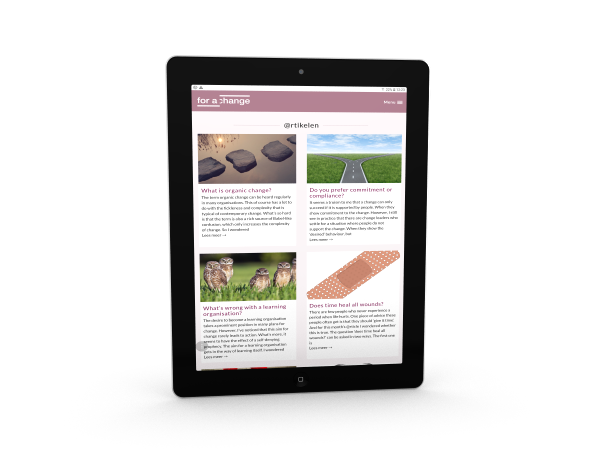‘Never Judge a Man Until You’ve Walked a Mile In His Shoes, sang Elvis in 1968.
If this was true, I might as well close my business. Because I have made it my business to help top and middle managers but have never been one myself.
So, how literally should we take these words from Elvis? Does a geriatrician have to be old himself? Should a pedagogue be a parent? Or should a dietician have had weight problems?
The answer might seem an open door, but when I entered it I did find some interesting insights on the essence of helping others and my very own role in it. Offering help can be done in three different roles, each relating differently to the other person’s ‘shoes.
Help from the Recliner
It feels awful to get help from someone who hasn’t looked into the complexity of your situation. Someone that doesn’t even see your shoes. That person is helping you while sitting in his recliner, using the word ’just’ once too often:
‘You just have to let go’
‘You just have to say how you feel’
‘It’s just about getting some support’
Help offered by someone in a recliner never works. It only makes you feel insecure. Because if the solution is that simple, doesn’t that make you plain stupid?
Help from Fellow Sufferers
When experiencing a problem, it is good to have people around who recognize it from their own experience. Just knowing you’re not alone could give you the boost you need to find a solution on your own. People who have been in a similar predicament can share many do’s and don’ts about what they’ve done to solve their problems or to make their situation more acceptable.
Their true value lies in the fact that they’re not walking your shoes, but putting theirs next to yours.
Help from Professionals
Professional helpers like coaches and expert consultants add value in another way. Within the scope the problem can present itself, they are able to identify the innumerous parameters and their impact, the solutions that will work in whatever situation and the steps you need to bring a solution to life. With their professional training and their many years of experience they can analyze every single problem that is presented to them, asking questions and making suggestions in such a way that it becomes clear what to do next.
The professional helper does not walk your shoes. He uses his craftsmanship to help you get rid of your sore feet.
Conclusion
So, you don’t have to walk a mile in another man’s shoes to be able to help. Moreover, you can’t even walk his shoes. His shoes won’t fit. You can’t feel what he feels. Because you are not him.
You can only help someone if you recognize that he’s wearing different shoes.
Annemarie Mars, October 2018
For Those Who Would Like to Know More
About helping and judging
Elvis wasn’t singing about helping, he was singing about judging. Helping and judging stem from the same root. To be able to help you must make a value judgement. You must first understand what’s right and wrong about a certain situation so that you can help to improve it.
What Elvis was really singing about was prejudice. That would never be appropriate, not even after looking into one’s specific situation. Your value judgment should always concern the situation, not the other person. I could write a whole blogpost about that difference! For now, I’d rather just focus on helping someone in relation to his or her complex situation, which in fact is the proverbial shoe.
About professional helpers who were in the same situation
Wouldn’t it always be better if professional helpers were in your situation?
The mere fact that a professional helper recognizes your situation from his own experience is undeniably a very powerful protection mechanism against the – also very common among professional helpers- pitfall to judge too easily about another person’s situation. But also, other professional helpers use protection mechanisms that are sufficiently adequate, such as respecting the client and empathy.
But you can’t have it both ways, because there is definitely some friction involved. When consulting a pedagogue, his elaboration on his own children doesn’t help me. It’s okay if he thinks that his experience suits my situation. But if he does it once too often my capability of self-reflection might diminish – we’re not talking about my situation, but his. Alternatively, I could stick to his solution: he has already found one. In both cases my ownership will have to foot the bill.
I’m Annemarie Mars: speaker, author and advisor on change.
It is my job to get people thinking about the way they give room, direction and guidance to organizations in motion. So that they can look for the essential conversation to change together.
Want to know more about my (online) presentations? Click here.


